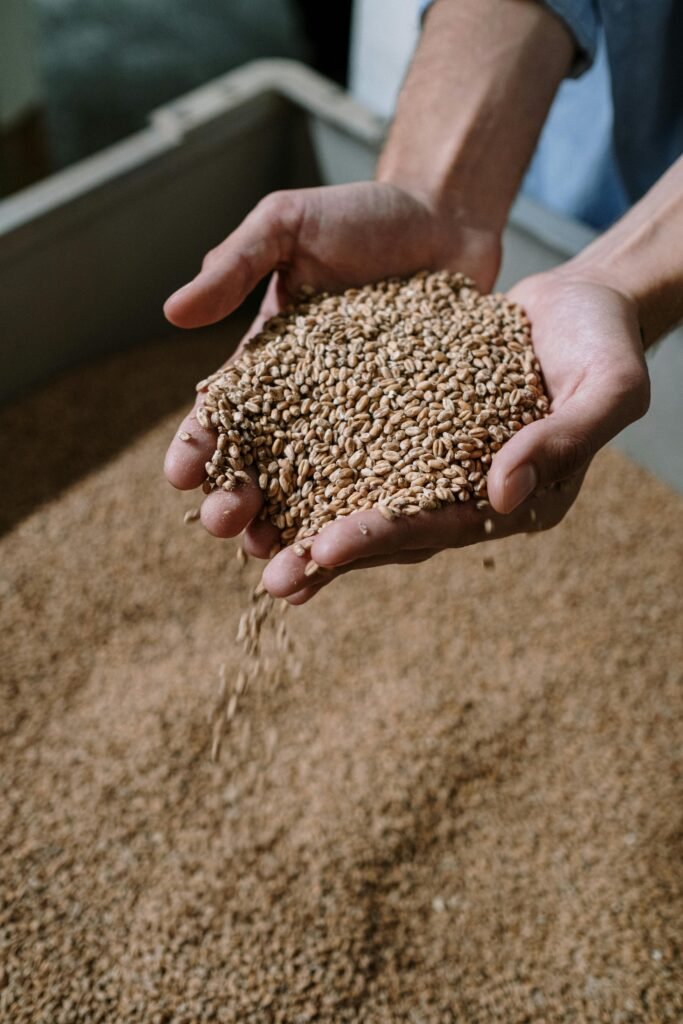Weight Gain Diet in Kenya whichever the case, whether losing or gaining, an appropriate weight is generally good for health. A well-planned nutrition plan is paramount, especially with local Kenyan foods, even in weight gain, just like in weight loss. Even when trying to gain weight, it should be balanced in such a way that the body achieves the required nutrition value without compromising its health.
In this elaborative post, we review the best approaches to weight gain through dieting in Kenya using traditional and locally available foods. We shall then dive deep into the role of different food groups, meal planning, and other common challenges you might face along the way as we give you a roadmap toward healthy and sustainable weight gain diet in Kenya
1:Introduction to Weight Gain and Nutritional Needs in Kenya
First, understand some of the principles behind the process of gaining weight. For one to gain weight, the body has to receive more calories than it is burning; this is what is called a caloric surplus. But healthy weight gain involves building muscle and just a bit of fat.
A Kenyan weight gain diet should be a balanced one, comprising all the macronutrients of carbohydrates, proteins, and fats, with additional micronutrients in forms of vitamins and minerals. While it’s important to have a caloric surplus in one’s body, it is by the type and quality of the food that plays the most vital role in the way the body will respond.
Some of those factors that could determine whether one will gain weight or not could be genetics, metabolism, and even activity levels. Individuals should therefore take this into consideration when devising personal diets, while ensuring that they are able to include whole, nutrient-rich foods.

2 :Traditional Kenyan Foods for Gaining Weight
There are tremendous traditional nutrient-dense food varieties in Kenya that can be included into the weight gain Kenyan diet. Most of the foods listed below are calorie-dense, full of nutritious value necessary for growth of muscles and overall health.
Some of the best staple Kenyan foods that will contribute to helping one gain weight include:
Ugali: Preparation made from cornmeal contains a lot of carbohydrates; hence, it provides good energy for weight gain. This meal is particularly effective when combined with high proteins like fish or meat for weight gain.
Githeri is made by boiling beans and maize; hence, this is a very good source of both carbohydrates and plant-based proteins. It is calorie-dense and may be enhanced with added fats like avocado or peanut butter.
Sukuma Wiki: Although this is a leafy green vegetable, sukuma wiki is more often than not served with other nutritious foods like meat and beans. Sukuma wiki can be added to a healthy weight gain diet in Kenya, especially if sautéed in healthy fats, like groundnut oil.
These are inexpensive foods and, therefore, cheap; they have a deep-seated history in Kenyan culture, especially for those looking forward to artificially and sustainably gaining weight.
3.Kenyan High-Protein Foods
In any gain in weight within Kenya, the inclusion of protein within your diet is important. It helps in the development and repair of body muscles; hence, it’s a necessity for those who aim at lean muscles. Kenya happens to fall among countries with great variety regarding both animal and plant-based sources of protein.
Nyama Choma : It is the most favorite thing in Kenya and usually carries beef, goat, or chicken. Grilled meat is a good source of quality protein; inclusion in a weight gain diet ensures that your body receives the needed amino acid for muscle growth.
Fish: Fresh fish is available in the coastal and lake regions of Kenya. It falls under the lean category of protein foodstuffs that is highly rich in omega-3 fatty acids. Tilapia, Nile perch, and omena are small fish whose meat is good to induce weight gain because of their contents of proteins.
Beans and Lentils: Other legumes in Kenya include beans, cowpea, and lentils. They are cheap and can be prepared through stews or mixed with energy foods like rice or chapati to give a complete meal that can result in gaining weight.
For better building of muscles, the intake of protein should be distributed along the day. The state of having proteinous meals and snacks every now and then keeps the body constantly supplied with nutrient products required for weight gain diet in Kenya

4.Carbohydrates for Energy and Weight Gain
This will make it the greater part of the majority of daily intake, especially when one does any kind of physical activity or tries working out in the gym to build up muscles. Carbohydrates are equally important to provide energy for body activities and physical exercise; hence, carbohydrates are an indispensable component of a Kenyan weight gain diet.
Kenya has a number of carbohydrate foods which are appropriate for weight gain:
Chapati: This is one of the popular flat breads among Kenyans. It is prepared using wheat flour, yielding a high amount of calorie intake within a given serving. It could be served with stews and beans or even githeri to have a high-calorie balanced meal.
They contain a rich amount of complex carbohydrates, hence proving to be nutrient-dense for weight gain. They also contain vitamins and minerals, hence forming a healthy complement for one desiring to increase in weight.
Maize and rice are staple foods for many Kenyan households. Both maize, consumed mainly in the form of ugali, and rice are highly dominated by carbohydrates that energize the body and aid in gaining weight. Such foods are easy to combine with proteins and vegetables for a complete meal.
A carbohydrate is what should be taken in every meal if one is observing a Kenyan weight gain diet. Inclusive of starchy vegetables, grains, and traditional staples, one can be assured to answer their energy needs as well as achieve a healthy weight gain accordingly.
5 .Healthy Fats for Weight Gain
They play a major role in weight gain dietary needs in Kenya, as they offer more than double calories per gram compared to the foods rich in carbohydrates or protein. Healthy fats will aid you in the increase of calorie intake without overfilling your stomach.
Some of the best sources of healthy fats in Kenya include:
Avocado: Avocados are one of the most nutritious fruits you could possibly ask for, filled with calorie-containing monounsaturated fat-a type of fat that’s deemed to be heart-healthy. Placing avocado on your meal or snack can help you get more calories inside of you while still being nutritious.
Ground Nut Oil: This is one of the widely used oils in Kenyan cooking. It contains unsaturated fats, and these are good for the body; it can therefore be used either in frying or cooking. Preparing sukuma wiki using this oil or even frying your meats with it increases the calories in your diet.
Nuts and Seeds: Peanuts, sunflower seeds, and sesame seeds contain healthy fat that can easily be snacked on and added into meals for extra calories.
These above-mentioned healthy fats will not only help someone to gain weight but also contribute to good heart health and overall well-being.
6.Vegetables and Fruits in a Weight Gain Diet
Although weight gain focuses more on the intake of calories, it is important to remember the micronutrient content of the food he or she consumes. Fruits and vegetables contain very vital vitamins, minerals, and fiber that are useful to an individual for general body health and well-being Weight Gain Diet in Kenya
Some useful nutrient-dense vegetables and fruits that can be consumed in Kenya for weight gain include:
Kale: Sukuma wiki is often served as a leafy green vegetable rich in vitamins A and C, with a high fiber content. If sautéed in healthy fats, such as groundnut oil, the calorie count can be greatly increased without sacrificing too much nutrition.
Banana: With fairly high carbohydrate contents and easily digestible, bananas give a person a good deal of energy fairly fast. They come in handy as bananas to snack on or in smoothies for a liquid drink high in calories.
Mangoes and Papayas are fruits loaded with vitamins and with rich calorie concentration. They can be taken as snacks, mixed in main meals, or combined to make smoothies to give a healthy addition of calories.
Consuming a variety of vegetables and fruits within your meal inclusion will cover those nutrients you need for general health, yet be aware of the calorie needs for weight gain.
7 .Sample Weight Gain Meal Plan in Kenya
A sample meal plan incorporating locally available foods in Kenya is highlighted below to ease weight gain. The accompanying meal plan incorporates all the calories, proteins, carbohydrates, and even the needed fats for weight gain diet in Kenya
Day 1:
Breakfast: Take two chapattis with scrambled eggs, avocado slices, and a glass of whole milk.
Mid-Morning Snack: A handful of roasted groundnuts and a banana.
Lunch: Ugali with nyama choma, sukuma wiki sautéed in groundnut oil, and a side dish of githeri.
Afternoon Snack: A mixture of whole milk, mango, and groundnuts.
Dinner: Rice with lentil stew and grilled tilapia.
Before Bed Snack: A glass of whole milk with a piece of sweet potato.
Day 2:
Breakfast: Boiled sweet potatoes with boiled eggs and a glass of whole milk.
Mid-Morning Snack: 2 slices of chapati with peanut butter and a banana.
Lunch: Githeri with avocado slices, accompanied by grilled chicken on the side.
Afternoon Snack: A handful of sunflower seeds and a mango.
Dinner: Ugali with goat stew, sukuma wiki sautéed in groundnut oil.
Before Bed Snack: One glass of whole milk with roasted groundnuts.
This meal plan has been simplified to offer a balanced weight gain diet in Kenya, using readily available foodstuffs.
8.Snacking-Its Importance in a Weight Gain Diet
Other than three meals, snacking is also one of the crucial ways of providing caloric surplus when on a weight gain diet here in Kenya. Snacks between meals act to Fill in the calorie gaps without overloading the body during main meals. Snacks, if well done, should be calorie and nutrient-dense throughout the day to supplement a weight gain diet. Here are some excellent Kenyan snacks to consider:
Boiled or steamed maize is one of the most accessible street foods sold in Kenya. Full of carbohydrates, it is a high calorie booster. Easy to prepare and not costly, therefore accessible for snacking; thus, it fits well into a weight gain diet.
Groundnuts are a good source of healthy fats, proteins, and calories. They can be consumed as is or added into foods like porridge or githeri in order to improve the overall intake of calories.
Roasted Yams or Sweet Potatoes: These two vegetables are rich in starch, hence high-calorie snacks, relatively easy to prepare. Roasting enhances their flavor and makes them convenient for use as intermeal snacks.
Mandazi: These are deep-fried dough treats popularly known in Kenya. They are high-calorie snacks due to the fat they contain. Thus, they shouldn’t be used too much, although they will be right for weight gain diets in instances of snacking.
Regular snacking not only allows one to keep energy levels throughout the day but also ensures that you are in a caloric surplus constantly, which is very important for weight gain.
9.Hydration and Beverages for Weight Gain
Though focus on food is important in any weight gain diet in Kenya, hydration cannot be ignored. Dehydration brings about fatigue, loss of appetite, and indigestion, which, besides being hazardous to health, are detrimental to one’s desire for putting on some weight. Other than water, high-calorie beverages added to the diet can amazingly improve one’s intake of calories.
Here are some healthy drinks one can adopt into the weight gain dietary regimen.
Whole Milk: The mainstay of most Kenyan households, whole milk is a very good source of both proteins, fats, and calories. A glass of whole milk taken at meal times or at any time during the day after snacks will go a long way in increasing your intake of calories per day.
Fruit Juices: Freshly pressed juices of mango and orange have oodles of natural sugars and calories. These juices have a number of very important vitamins that make them excellent complements to your diet.
Smoothies: Smoothies prepared at home using whole milk, bananas, avocado, and groundnut paste are calorie-heavy with loads of nutrition. These can be taken as snacks, or sometimes consumed even to replace meals when time becomes scarce.
Porridge: Uji is a traditional Kenyan drink, made from millet, sorghum, or maize flour to which whole milk, groundnuts, and honey could be added to increase the energy value. Ideal for breakfast and snacking among those on a weight gain diet.
Including high-calorie drinks in everyday life easily helps increase the overall intake of energy for healthy weight gain.

10.Overcoming Common Challenges with the Weight Gain Diet in Kenya
Like any other nutrition plan, a weight gain diet in Kenya may be prone to various challenges that deter or prevent people from adhering to the diet. However, identification and addressing these various challenges helps one stay on track for the realization of weight gain goals.
- Affordability of High-Calorie Foods
This would make access to high protein and calorie-dense foods in Kenya an affordability issue for some. Overcoming these requires the focus to shift to low-cost, locally available, calorie-rich, nutrient-dense foods-including but not limited to legumes, maize, sweet potatoes, and groundnuts. As a matter of fact, these foods-ugali, githeri, sukuma wiki-form a base of many traditional meals enjoyed by Kenyans at mealtimes and are really cheap.
Such foods may be largely unavailable in your region depending on the season. For example, coastal regions may have a readier supply of fish but the rural areas rely on their staple crops of maize and beans. Adapt your weight gain diet in Kenya to what is available locally, and where possible grow your own vegetables or rear your own livestock.
- Cultural Perception of Weight Gain
For example, weight gain is taken to be somewhat demeaning in some parts of Kenya while in the rest of the country, a full body speaks of good health and high status. Setting your personal objectives according to what you know about your health and fitness is something very important. You must set an objective of healthy weight gain by focusing on muscle mass gain and not sacrifice good health for increased weight.
- Be Consistent
Weight gain nutrition in Kenya should be done in a consistent manner. One thing that works for many is doing meal preps or planning so that you may always keep on track. You will not skip meals, hence healthy calorie-dense options are always available.
- Progress Monitoring
To achieve successful weight gain, monitoring will be helpful. Follow the food and portion sizes of food taken, body weight, and physical and mental feeling. Being mindful will help you to make needed adjustments for you to achieve the required dietary needs of both calories and nutrition.
Conclusion
It doesn’t necessarily have to be complicated or costly to achieve in Kenya, though. A person can well attain a complementary food plan with traditionally nutrient-dense foods such as ugali, githeri, nyama choma, and groundnuts. Addition of a mix of carbohydrates, proteins, healthy fats, and micronutrients into the diet toward achieving one’s body weight shall be safely and effectively achieved while still sustaining general health.
The trick for gaining weight is to be in a consistent caloric surplus, but make sure most of those calories-if not all-are actual whole foods. Combine this with snacking often, staying hydrated, and monitoring your progress closely, and you will be well on your way to gains in muscle mass, improved strength, and a generally much healthier weight in no time. You will, on this basis, be in a position to contextualize a diet to your needs and life circumstances based on seasonal produce available in Kenya.
The right strategy, discipline, and focus on nutritious calorie-dense foods will enable one to follow through with a Kenyan weight gain diet. This means working toward your muscular or otherwise weight gain goals in support of general well-being.


